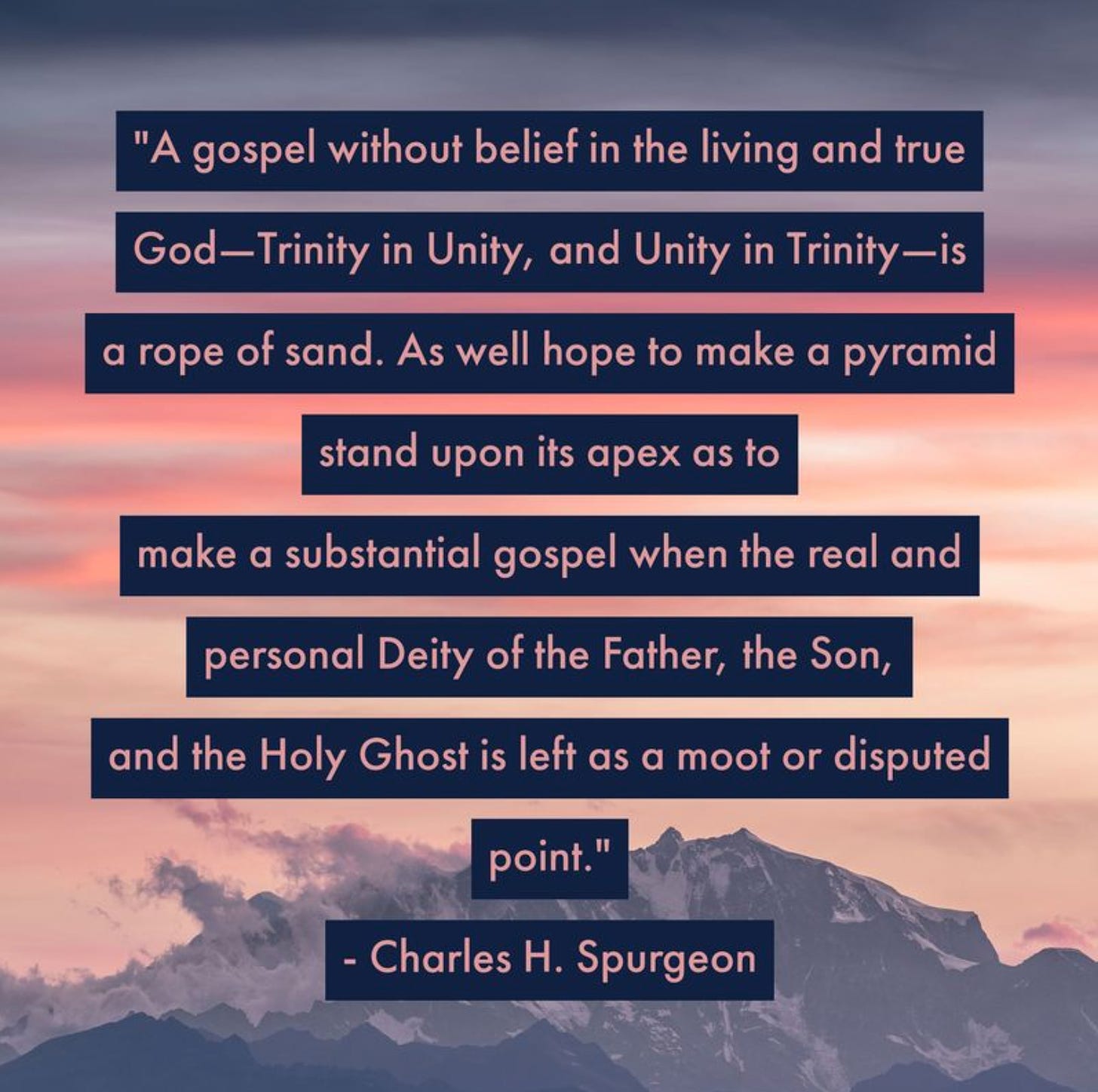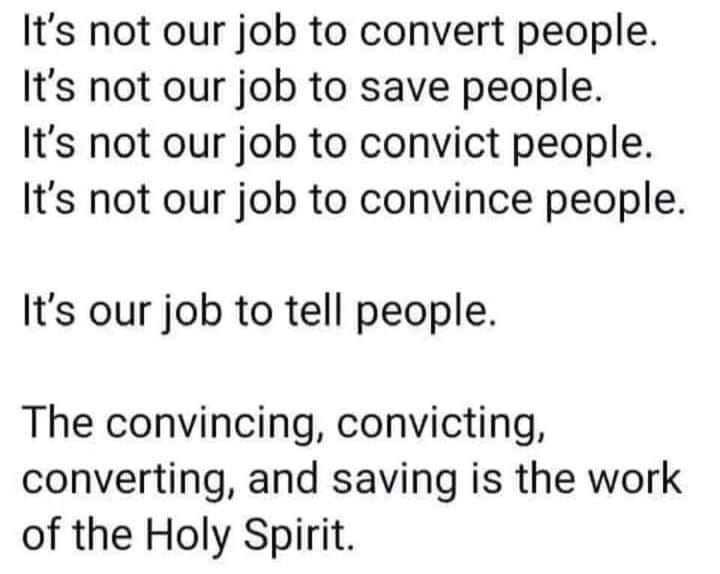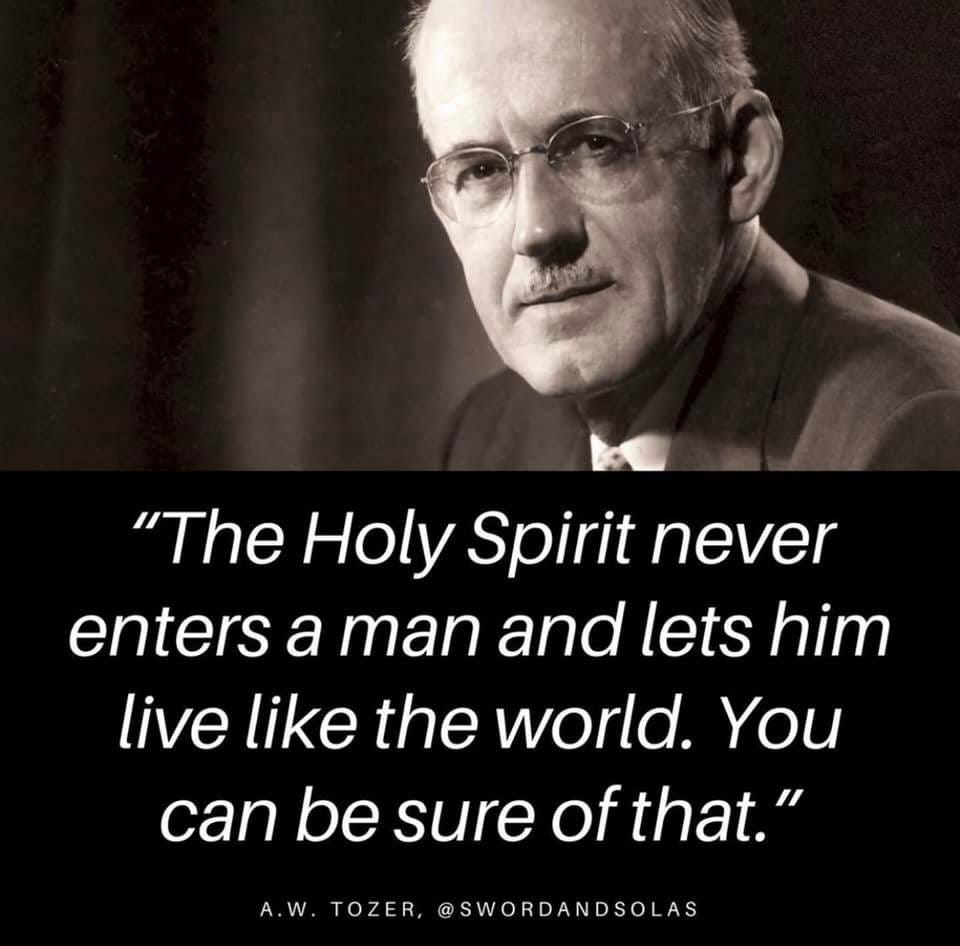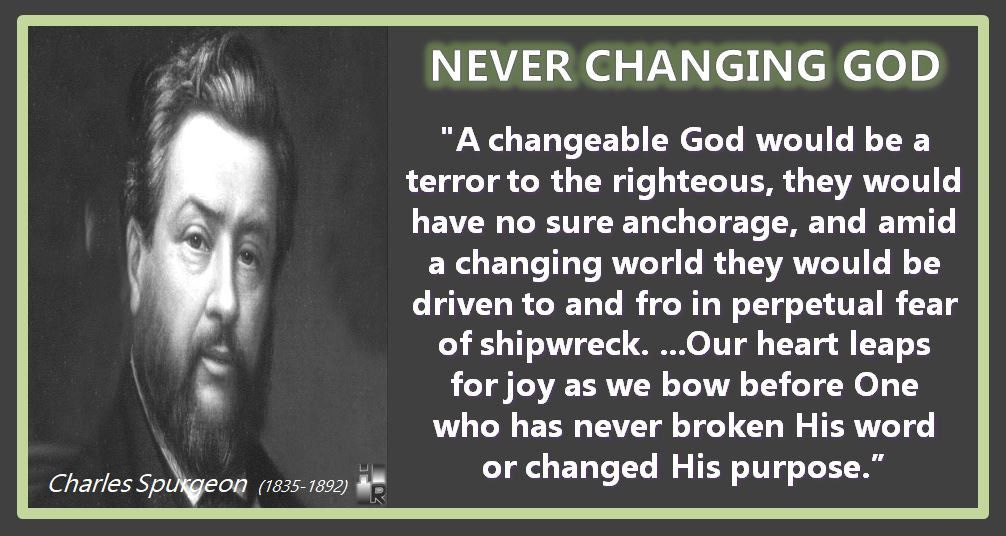
Discover more from Jeffrey Rickman’s Substack
Methodist Nature: Balanced Holy Spirit People
Why a healthy relationship with the Holy Spirit is not an option for Methodists, or really, anyone
With the formation of the Global Methodist Church, a reclaiming of the Methodist heritage is in order. Many voices are submitting ideas with respect to the particulars of Methodist identity. I have my own thoughts, which are being spelled out in a series of articles. This is the ninth of at least twelve. You might read my introduction to this series first in order to know how I have thought through this project and why I care about it.
The Importance of Knowing God Rightly
Most Christians, even if they are discipled in an independent congregation, know something of the mystery of the Trinity. God is one, but God is also three. All three persons of God are coequal (one is not greater than the other), coeternal (none existed before the others), and made of the same stuff as the other. Even so, while they share the same nature, the same substance, the same activity, the three are not the same as one another. The Father is not the Son. The Son is not the Spirit. This is a holy mystery that has broken the brains of men much wiser than me.
The most helpful distilled Trinitarian theology I have ever seen is the skit “St. Patrick’s Bad Analogies” by LutheranSatire. It pulls a lot of weight to show just how wrong some understandings of this mystery can go. Unfortunately, it doesn’t go very far to explain why it is that we should care or what is at stake if we get things wrong.
Shortly, understanding God rightly directly ties to our salvation. To understand who we are called to be, we need to understand who God is. This is so important that God, after centuries of telling us about himself in special revelation recorded in the scriptures, actually came in the flesh to show us who he is, then he sent his Spirit to further add to our knowledge of him. We only properly know one another when we properly know God. A distorted understanding of God will yield, not only a distorted understanding of self and others, but it will warp the relationships between us.
The ineffable God has explicated himself to us. The expectation is not that we do our best on our own, follow God with good intentions, and hope that it is enough. Rather, God fully expects that we spend our entire lives seeking him, knowing him, and conforming our lives to him. Indeed, this is the only path to any true peace.
The Personhood of the Holy Spirit
From the earliest days of the Christian faith, there have been those who have tried to submit different persons of God to the others in a subservient role. Arianism reduced the Son to a demigod, lesser than the Father. Many others across history have understood the Holy Spirit to be more of a force or a principle than a person. Many have wanted to imagine that the third person of the Trinity can be controlled, taken for granted, or redirected as any other force of nature can be.
The truth, however, is that the Spirit is every bit as much of a person as the Father and the Son are. He is not to be co-opted. He cannot be controlled or cajoled. Rather, he has full sovereignty, equal to that of the Father and the Son. Working and dancing perfectly alongside the Father and the Son, he accomplishes our salvation in ways that are intimately personal for us and for him.
Ancients and moderns alike have understood that when Jesus promised the Paraclete (Advocate or Comforter), he was promising a person to come in his place after he ascended. This person of God would seal us and testify to our spirits that we are children of God.
“But very truly I tell you, it is for your good that I am going away. Unless I go away, the Advocate will not come to you; but if I go, I will send him to you. When he comes, he will prove the world to be in the wrong about sin and righteousness and judgment: about sin, because people do not believe in me; about righteousness, because I am going to the Father, where you can see me no longer; and about judgment, because the prince of this world now stands condemned.”
- John 16:7-11
“And you also were included in Christ when you heard the message of truth, the gospel of your salvation. When you believed, you were marked in him with a seal, the promised Holy Spirit, who is a deposit guaranteeing our inheritance until the redemption of those who are God’s possession—to the praise of his glory.”
- Ephesians 1:13-14
“For those who are led by the Spirit of God are the children of God. The Spirit you received does not make you slaves, so that you live in fear again; rather, the Spirit you received brought about your adoption to sonship. And by him we cry, “Abba, Father.” The Spirit himself testifies with our spirit that we are God’s children. Now if we are children, then we are heirs—heirs of God and co-heirs with Christ, if indeed we share in his sufferings in order that we may also share in his glory.”
- Romans 8:14-17
Truly orthodox believers throughout the ages have understood that a force cannot groan for us. Nor can he teach us things. These are very personal things that only another person can do to and with us. The Holy Spirit is not the Force from Star Wars. He is the third person of the Trinity, of equal power and worth to the Father and the Son.
“ In the same way, the Spirit helps us in our weakness. We do not know what we ought to pray for, but the Spirit himself intercedes for us through wordless groans. And he who searches our hearts knows the mind of the Spirit, because the Spirit intercedes for God’s people in accordance with the will of God.”
- Romans 8:26-27
“But the Advocate, the Holy Spirit, whom the Father will send in my name, will teach you all things and will remind you of everything I have said to you.”
- Romans 14:26
The Gendered Nature of the Holy Spirit
Many from the Methodist world will have already taken note that I have used masculine pronouns to refer to the third person of the Holy Spirit. In this era, much work has been done to undo the masculine character of God. Many imagine the Spirit to be feminine, in some sense counterbalancing or completing the masculine parties of the Father and Son. Others on the more Progressive left have sought to undo the masculinity of the Father and the Son, either questioning their traditional gender roles, or even by questioning God’s selection of his own pronouns in scripture.
While I can easily affirm that the noun for ‘spirit’ in Greek is neuter, this in no way indicates a confusion as to the Spirit’s gender. Rather, early Christian theology is rather explicit: the feminine counterpart to our masculine triune God is us - the church. We are the bride (see the feminine imagery there) of Christ! While there are many scriptures making this explicit, Ephesians 5:25-33 is so beautiful:
“Husbands, love your wives, just as Christ loved the church and gave himself up for her to make her holy, cleansing her by the washing with water through the word, and to present her to himself as a radiant church, without stain or wrinkle or any other blemish, but holy and blameless. In this same way, husbands ought to love their wives as their own bodies. He who loves his wife loves himself. After all, no one ever hated their own body, but they feed and care for their body, just as Christ does the church—for we are members of his body. “For this reason a man will leave his father and mother and be united to his wife, and the two will become one flesh.”This is a profound mystery—but I am talking about Christ and the church. However, each one of you also must love his wife as he loves himself, and the wife must respect her husband.”
Modern feminism has problematized the masculinity of God out of an extended resentment towards complementarianism. Complementarianism argues that men and women are different in some significant (though not qualitative ways). As the marriage liturgy says, “God made us male and female for each other.” We are made to complement one another, to operate as two sides of a whole unit. “Therefore a man will leave his father and mother and cling to his wife, and the two will become one flesh.” They aren’t two neutered persons. Rather, they are differently-sexed people, and that matters.
Feminists have found sex-essentialism distasteful and old-fashioned. They much prefer to see people as divorced from their sex. This is the root of modern gender dysphoria and the transsexual contagion. It is also the source of revisionist theology that likes to remake God in a feminine image. We do not encounter a feminine god in the scriptures. Rather, we (collectively feminine plural) encounter a masculine God who saves us and cares for us as a loving, strong husband cares for his wife. This strong and caring masculinity is shared by all three persons of the Trinity. The feminizing of the Spirit is a threat to true faith. While feminism made a comfortable home in United Methodism, I am one of many voices who are hoping that we can step back from the radical extremes of that worldly ideology, especially as it pertains to our notions of God.
The Threat of the Holy Spirit
The Holy Spirit has always made people go nuts. The original group I know of that got obsessed with the third person of the Trinity, the Holy Spirit, was called the Montanists. They were known for being super charismatic, having lots of prophecy, interrupting gender roles, and falling into heresy. One of my favorite early church theologians, Tertullian, was condemned as a Montanist heretic. I am sympathetic to histories that defend his orthodoxy.
Modern day charismatic churches are known for their excesses. Many leaders in the charismatic tradition like to imagine themselves as somewhat grandiose, matching their imagined status in the household of God with great titles. The “New Apostolic Reformation” (NAR for short) has become the bogeyman of many a proper Presbyterian.
I must confess having myself harbored some great suspicion of people who seem a little too cozy with the Holy Spirit. To be fair, I’m also put off by people who talk about Jesus more like he’s a boyfriend than a Savior. But with respect to the Spirit, some people seem to imagine him as some kind of affirming and warm presence rather than a purifying fire. Some seem to imagine themselves as some commandeer of the Holy Spirit, rather than his rightful subject. I have known too many who imagine that they are perfected in faith because they consistently have some experience of the Spirit. You know the type:
I have seen so much harm come from people like this. These self-referential, eisegetical, NARcissistic folks. They are your best friend when there is no conflict and things are going great. However, once they get a bad taste in their mouth about a ministry, a leader, a small group, they speak for the Spirit and act as though they have insight to inner and hidden things. I have been personally harmed by folks like this, eager to dramatically pray for healing while neglecting basic care for their job or the daily wellbeing of others. I have seen folks like this tear churches apart with their feelings and strong pronouncements in a spirit. It is true that people who have bad doctrine about the Father and the Son can also tear apart churches. But it is people who claim the Spirit who do the most damage. They are not only unshakeable in their confidence, but they fully believe and outwardly claim to have the Holy Spirit as their ally in enmity. There is no talking to them. There is no reasoning, discernment, or negotiation. One can only get away.
No Way Out
Even so, there is no version of the Christian faith that is divorced from the Holy Spirit. You cannot be a Christian without a strong relationship with the Spirit. No matter how great your personal understanding of the Father and the Son are, no amount of personal knowledge or experience of them can save you.
Reading John Wesley’s sermons is what gave me this great clarity. The Father sits enthroned above, Christ at his right hand interceding for us. It is the Holy Spirit who connects us to them in the most powerful force in the universe: prayer. It is the Holy Spirit that awakens us from the stupor of sin, extending preventing grace to poor souls otherwise lost in sin forever. It is he who not only awakens us, but teaches us to mourn our sins, to hate our inner natures, and to turn to Christ. It is the Comforter who silences the accuser and applies the blood of Christ to our hearts, who operates through the waters of baptism to give new birth and regeneration. It is the Advocate who seals us for the day of judgment, who testifies to our spirits that we are children of God, who facilitates our adoption into the household of God. Even after all that, it is the Holy Spirit that makes a home in us and goes to war in every nook and cranny to entirely sanctify us unto the Lord.
Consider the hymn, “Come, Holy Ghost, Our Hearts Inspire,” by Charles Wesley:
Come Holy Ghost, our hearts inspire,
let us thine influence prove;
source of the old prophetic fire,
fountain of life and love.Come, Holy Ghost, for, moved by thee,
thy prophets wrote and spoke:
unlock the truth, thyself the key,
unseal the sacred book.Expand thy wings, celestial Dove,
brood o'er our nature's night;
on our disordered spirits move,
and let there now be light.God, through himself, we then shall know,
if thou within us shine;
and sound, with all thy saints below,
the depths of love divine!
See, this is why I generally prefer the older hymnody to the newer stuff. In one hymn, Charles establishes that the Holy Spirit is the only spirit animating true prophecy across history, the source of life and love, the necessary relationship to understand the true meaning of scripture, the one who brings order to our chaotic and ignorant lives, and the inner presence that testifies to our salvation and binds us together with all true believers.
The first generation of Methodists was regularly accused of ‘enthusiasm’ because of the frequency of congregational experiences of the divine. They were known for exuberant outbursts like barking, falling to the ground, shouting. While they retained the order and ethos of Anglicanism, they also insisted on the importance of the subjective encounter with God himself, relationally, through the Holy Spirit. Indeed, this is what we celebrate when we recount the story of John Wesley’s ‘Aldersgate Experience.’ He felt the Lord’s atoning blood close to his heart applied.
Even so, the experience of justification and new birth in the Methodist framework was always expected to be followed by a prolonged period called sanctification, or growth in holiness. While it was allowed that it might be that a person upon receiving regeneration might be instantly perfected in love, the expected norm was that born again believers would grow in holiness for the rest of their lives, aiming at entire sanctification, believing that God’s Spirit is more powerful than our sin. The common understanding was that if a believer was not intentionally working with the Spirit to grow in holiness, then he was renouncing his heritage in Christ. Unlike other traditions that imagined the fulness of the Christian experience to be justification and new birth, Methodists focused on sanctification as the primary mode of authentic Christian discipleship. Indeed, if justification is akin to a wedding ceremony, then sanctification is akin to the actual marriage (I didn’t come up with this metaphor, but I don’t remember who did). Authentic Methodists are focused more on a quality marriage than a perfect wedding ceremony.
This path of sanctification is the entire purpose of the rest of our lives. We have no more meaningful work to do than to declare war alongside the Holy Spirit and follow his lead into holiness. In fact, without the presence and power of the Holy Spirit, there can be no victory against sin. Even if Christ’s blood has been applied to our hearts, to attempt any good work without the work and blessing of the Spirit is folly. We can do no good work outside of his activity in us.
The Lord’s call is to “be holy as I am holy.” One cannot be holy without his HOLY SPIRIT. You might believe the right things, but all you have is a dead orthodoxy unless the Spirit breathes life into your dead spiritual bones. The purpose of life is not to get rich, to have lots of friends, to have a big healthy family, to be thought of well by your society, or anything besides this: holiness unto the Lord. If we have the Lord, we have all. Or as Jesus said:
“Whoever wants to be my disciple must deny themselves and take up their cross and follow me. For whoever wants to save their life will lose it, but whoever loses their life for me will find it. What good will it be for someone to gain the whole world, yet forfeit their soul? Or what can anyone give in exchange for their soul? For the Son of Man is going to come in his Father’s glory with his angels, and then he will reward each person according to what they have done.”
- Matthew 16:24-27
The treasures of God in this life are afforded us only through the activity and presence of the Holy Spirit. In our journey of sanctification, he alone is the one responsible for the power we are given. Yes, that power surely includes miraculous healings, tongues, exorcisms, and prophecies. If God is the same yesterday, today, and forever (Heb. 13:8), then it is a strange thing to imagine that these things have ceased. Even so, Paul made clear that the primary outworkings of the Spirit are love, joy, peace, patience, kindness, goodness, faithfulness, gentleness, and self-control (Gal. 5:22-23). Faith, hope, and love are the greatest promises that we receive in 1 Corinthians 13:13. The supernatural outpourings of the Spirit, the signs and wonders, are considered ‘noisy gongs and clanging cymbals’ next to these. They have no power to save in an eternal sense, even if they give comfort in a temporal and/or bodily sense.
Those concerned with the Holy Spirit often confuse the phenomena for the numina. The essence of the Spirit is not to be associated with signs and wonders, as other spiritual powers can mimic what the Spirit can do. Rather, it is scriptural virtue and obedience that verifies the presence of the Spirit. Or, as Jesus says, we judge by the fruits (Matt. 7:20). The fruits of the Spirit are not necessarily miracles, but biblical obedience and conformity to the image of Christ (Matt. 7:21-23). Actually, properly understood, biblical obedience and conformity to the image of Christ are quite miraculous.
Much more miraculous than tongues and healings! Tons of people who have been channels of God’s healing power will burn in the eternal fires. All who submit to the Spirit’s power in creating the mind of Christ in themselves, with or without what we think of as miracles, will be welcomed into the Kingdom of God. By my lights, at this point in my life, it seems to me that the scriptures in no way correlate supernatural outpourings of the Spirit with salvation. Rather, they seem to be arbitrary signs of God’s love for our encouragement, which we can choose whether to regard as such.
It is like the rain. As Jesus said, “He causes his sun to rise on the evil and the good, and sends rain on the righteous and the unrighteous” (Matt. 5:45b). God pours out his signs and wonders graciously and bountifully. It is not at all indicative of our salvation or right standing with God, but instead of his love for all men.
The Closing of the Canon
All of these understandings disappear if the reliability of God’s scriptures are discounted, or if people seek to add to them. The Christian canon (definitive list of acceptable books of scripture) was closed many centuries ago. We are warned against removing any of it or adding to it. This warning is not to somehow protect some legacy of some dead men long gone. It is rather to contend for the faith that was once for all entrusted to the saints. The scriptures contain all that is needed for salvation. No other knowledge is needed. While the Spirit extends himself to us even today, and he is the exact same Spirit who inspired the biblical authors to write what they wrote, our God is not a God of confusion. He does not change. Indeed:
If we serve a God who changes, and his Spirit is sent to many who disagree about what he is saying, do you know what happens? Chaos. A situation in which disparate and unconnected “churches” follow charismatic leaders who claim to have “new” teachings from the Spirit. That’s sorta like what we have today, isn’t it? Our God is not a God of confusion. Our God is One. His truth is One. His Spirit is One.
Anyone who claims to have the Spirit, but whose life or teachings stand against the historic teachings of the church is a confused and dangerous person. Anyone who claims to operate in the Spirit but does not dwell upon God’s Word day and night, who does not practice daily disciplines of prayer and fasting, who does not submit to the divine path of nonretaliation and the blessing of enemies, who does not seek to care for the poor, widow, and orphan, who has no heart for those persecuted for righteousness’ sake…they are liars and false. That so few churches seem to have this discernment about appropriate spiritual leadership is very concerning to me.
As Paul makes clear in 1 Corinthians 1, the church is not supposed to be a place where people subscribe to one person’s leadership over another. All leaders are to be united under the lordship of Christ himself. Christ alone is Lord of his church. If the canon is open, and different ‘prophets’ can preach conflicting instructions from the Holy Spirit, then the church will devolve into factions and personality cults. Unless we insist on the finality of our scriptures, unless we reaffirm that the canon is closed and no other texts or people can augment it, we will continue to see division and acrimony. The Spirit brings order and unity in true doctrine. While we must continually be open to revelation from the Spirit that conforms to what we find in scripture, we must also be firm in guarding against those practices that distract from biblical doctrine and scriptural fidelity.
A Call for Balance
As I hope I have made clear, it is not a faithful or realistic option to dismiss the Holy Spirit, nor to place him in contradistinction to the Father and the Son or the scriptures that testify about them. Rather, all of these realities must be held in perfect balance, interacting with but never subtracting from one another.
The faith that Methodists are uniquely positioned to preach is one that has a robust pneumatology (doctrinal conception of the Holy Spirit) while also not going nuts. The concern for right doctrine should always take precedence over our walk in the Spirit. The order and discipline of Methodism, rather than being an impediment to spiritual living, is rightly seen as a magnifying glass for the presence and power of the Spirit in our lives. If you read through all of the previous articles in this series, you will see how all of these tie together in responsible relationship with the Holy Spirit. Methodists had a very good formula, perhaps not perfect, but very good, for reflecting a biblical faith in right relationship with our Triune God.
In today’s Methodism, there seem to be many who are in favor of an unbridled swing towards charismatic expressions of the Christian faith. There are also many who desire to go back to Anglicanism. It seems to me that the authentic nature of Methodism is a balanced adoption of both sides of that continuum. I suspect this concept aligns with Bishop Scott Jones’ notion of the “extreme center.” Sometimes the extreme or radical thing is not to be found on one of the sides of a continuum, but in a balance between two. I think that is the case with respect to this concern for how we walk in the Spirit.


























Jeffrey, as you’ve noted here in this article, the role of the Holy Spirit is essential to our salvation, from start to finish. One other aspect that I’ve noticed amongst Wesley’s spiritual descendants is that I’ve never encountered a cessationist, in other words I’ve never heard of one who denies that some of the Gifts of the Spirit have now ceased. I personally can’t find any Biblical support for cessationism. As to the proper gender assigned to the Holy Spirit, Jesus himself referred to the promised gift of the Holy Spirit as he or him in John 15:26, and 16:7-8. Also Paul used the term “Spirit of Jesus Christ “ interchangeably with Holy Spirit in Philippians 1:19. As to the old hymns about the Holy Spirit having more theological depth, one of my favorites is Luther’s hymn, “Come , God Creator, Holy Ghost”. He translated it from a much older Latin hymn entitled VENI CREATOR SPIRITUS, which is attributed to Pope Gregory 1, who was born A.D. 540.
Very nicely done, especially in laying out the distinctions between cessationism vs continuation of supernatural acts vis-a-vis the fruits of the Spirit—all illustrating the balance of a well-considered Wesleyanism. Thank you for helping us to think through this all important doctrine.